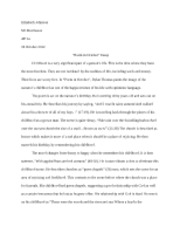- Major Works Data Sheet Romeo And Juliet Book
- Major Works Data Sheet Romeo And Juliet Full
- Major Works Data Sheet Romeo And Juliet Summary
- Major Works Data Sheet Romeo And Juliet Movie

Romeo ended up attacking back soon after, “In my behalf. My reputation stained, With Tybalt’s slander- Tybalt, that an hour, Hath been my cousin”(3.1.116-118). This quote supports that even though Romeo loved Juliet, he immediately thinks about his own reputation and how it had been ruined by Tybalt. He doesn’t think about Juliet’s family member, proving that Romeo only cared about. Romeo and Juliet (Film 1968) study guide contains a biography of Franco Zeffirelli, literature essays, quiz questions, major themes, characters, and a full summary and analysis. Romeo is the teenage son of the Montague family, who are busy feuding with the Capulets. In the beginning, Romeo is brooding over his unrequited love for Rosaline. When he sees Juliet at a party, Romeo instantly falls in love with her instead. They impulsively decide to marry the next day.
| String Quartet | |
|---|---|
| No. 1 | |
| Early string quartet by Ludwig van Beethoven | |
| Key | F major |
| Opus | Op. 18, No. 1 |
| Composed | 1798–1800 |
| Dedication | Joseph Franz von Lobkowitz |
| Published | 1801 |
| Movements | Four |
Played by the Pascal Quartet | |
| Problems playing these files? See media help. | |
The String Quartet No. 1 in F major, Op. 18, No. 1, was written by Ludwig van Beethoven between 1798 and 1800, published in 1801, dedicated to the Bohemian aristocrat Joseph Franz von Lobkowitz. It is actually the second string quartet that Beethoven composed.
Major Works Data Sheet Romeo And Juliet Book
The quartet consists of four movements:
- Allegro con brio (F major)
- Adagio affettuoso ed appassionato (D minor)
- Scherzo: Allegro molto (F major)
- Allegro (F major)
According to Karl Amenda, Beethoven's friend, the second movement was inspired by the tomb scene from William Shakespeare's Romeo and Juliet. The quartet was heavily revised between the version that Amenda first received and the one that was sent to the publisher a year later, including changing the second movement's marking from Adagio molto to the more specific Adagio affettuoso ed appassionato. Of these modifications, Beethoven wrote: 'Be sure not to hand on to anybody your quartet, in which I have made some drastic alterations. For only now have I learnt to write quartets; and this you will notice, I fancy, when you receive them.'[1]
The theme of the finale is almost directly borrowed from the finale of his earlier string trio, Op. 9, No. 3 in C minor; the themes are very closely related. The principal theme of the first movement echoes that of Mozart's Violin Sonata No. 32 K. 454 (1784) and Haydn's 1787 Opus 50, No. 1 quartet.[2]
Major Works Data Sheet Romeo And Juliet Full
The 'Amenda' manuscript, as it is sometimes known, was edited by Paul Mies and published by Bärenreiter around 1965, and by Henle-Verlag of Munich (perhaps also edited by Mies) in 1962.[3] This early version of one of Beethoven's best-known works has been recorded perhaps less than a half-dozen times as of July 2014.[4]

Notes[edit]
- ^Winter & Martin 1994, p. 151.
- ^Sutcliffe 1992, p. 67.
- ^See OCLC803615623, OCLC59009141.
- ^The first movement by the Juilliard String Quartet in 2008- OCLC319178284 but before that, the premiere was given by the Pro Arte Quartet on a Laurel Records cassette/long-playing record in 1981 - OCLC612773288 (with notes by musicologist Lewis Lockwood.) ('Original version' in the title of that record should perhaps be recast as earliest surviving version.) There is another complete recording - listed as Hess 32 - here: OCLC156914724, played by the Quartetto Paolo Borciani, released 2007; also by the Hagen Quartet on a Deutsche Grammophon set (OCLC38129193) ;
Major Works Data Sheet Romeo And Juliet Summary
References[edit]

- Sutcliffe, W. Dean (1992). Haydn: String Quartets, Op. 50. Cambridge: Cambridge University Press. ISBN0521399955.
- Winter, Robert; Martin, Robert, eds. (1994). The Beethoven Quartet Companion. University of California Press. ISBN0-520-08211-7. (Especially the essay by Michael Steinberg, pp. 150–155.)
External links[edit]

- String Quartet No. 1 in F major, Op. 18: Scores at the International Music Score Library Project
- Programme notes on the Beethoven string quartets by the British broadcaster and composer Robert Simpson